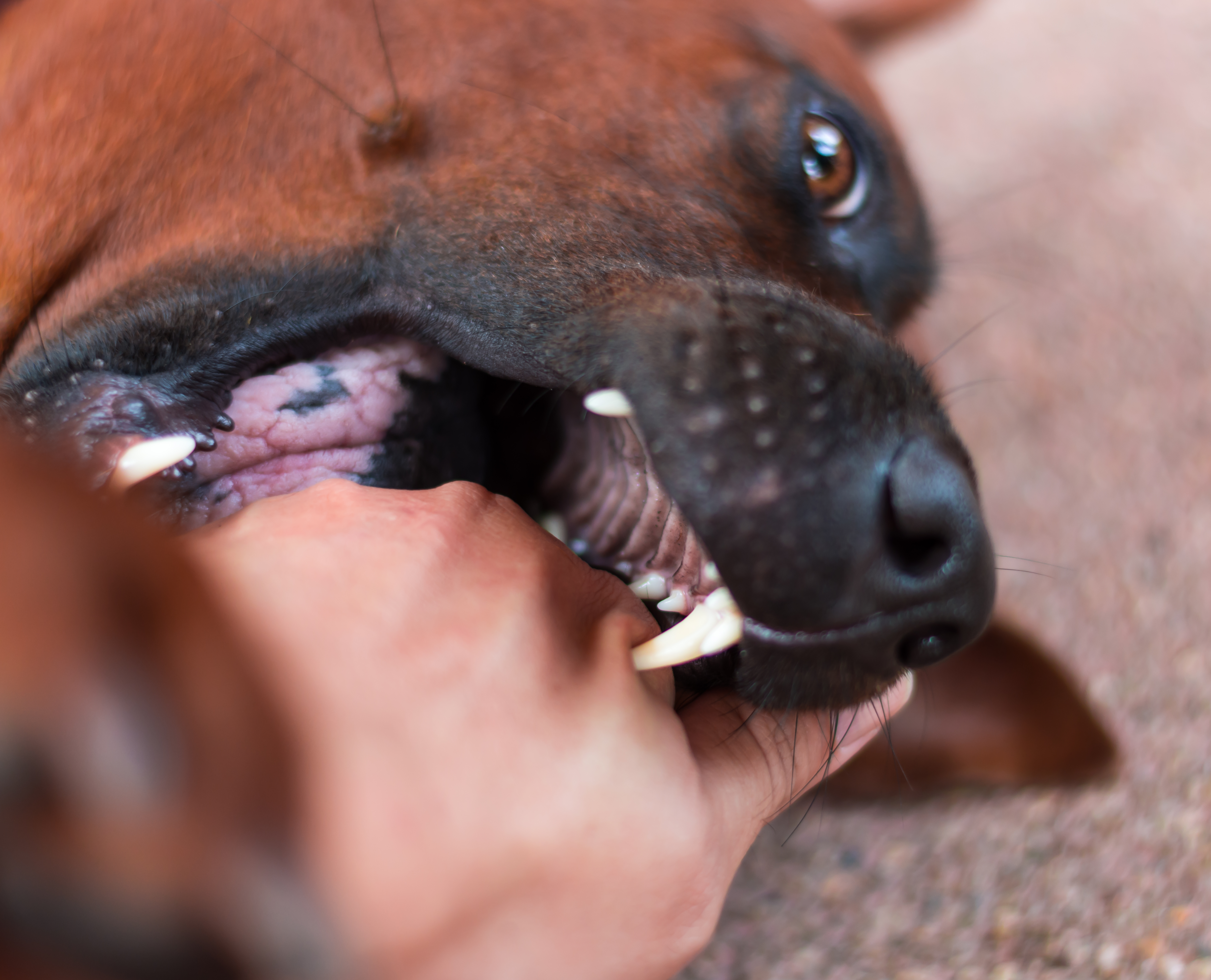
Getting bit by a dog is a terrifying experience, even if the attack was only minor. Understandably victims might be confused about what happens next. What to do after a dog bite? Knowing what to do after a dog bite injury is crucial, as your actions can impact your potential personal injury claim.
Every year, more than 4.5 million people are bitten by dogs around the country. At least 800,000 of these victims require medical attention. Any dog can attack. Dog bites are not limited to specific size dogs or breeds.
Because victims do not always know what steps to take, they might forgo pursuing a potential compensation claim. However, it would be best to meet with an experienced Washington dog bite attorney before deciding what to do next. Read on to learn more about what to do after a dog bite for a claim.
Steps to Take After a Dog Bite Accident
Potential clients often ask us what to do following a dog bite. To help prepare you for your client meeting, here are some actions we recommend you take after being bitten by a dog.
Get Medical Treatment
It’s crucial to seek immediate medical treatment for any dog bite, especially deep puncture wounds. Dogs carry bacteria in their mouths. Without medical treatment, you could get an infection. When you don’t know the history of the dog that bit you, you might need a rabies shot, too.
The type of medical treatment you need depends on the circumstances of the bite. Some dogs have such large teeth and strong jaws that a bite can crush bones. Internal bleeding and other serious injuries can also occur. With a severe injury, it’s best to call 911. Emergency medical services and the police will likely show up to investigate the accident. If your injury is less severe, you can immediately administer first aid to the wound and then visit urgent care or a doctor’s office.
Document Your Injuries
If possible, document your injuries with photos. Do not put yourself further at risk, but taking photos of your injuries and the scene can help when pursuing a claim against the dog’s owner. Medical records typically don’t include pictures, which is why it’s best if you can document your injuries visually.
Photographs of the healing process are also important, especially in cases involving significant deformities. It could be one or two years before your case is in litigation. Those photos can fill in the gaps on how your injuries impacted your day-to-day life.
Follow Your Doctor’s Orders
Be sure you follow your doctor’s instructions for aftercare. You must mitigate your damages. Mitigating means you need to take steps to ensure you don’t worsen your injuries. If the doctor tells you to come back for a follow-up and you don’t, the dog owner’s insurance might not cover any worsening injuries. You essentially caused the complications by not going back to the doctor as ordered. The dog owner’s insurance will argue that you didn’t mitigate your damages, and they are not liable.
Identify Who Owns the Dog
Before filing a lawsuit for damages, you must identify who owns the dog. Confirming the right owner can be more difficult if a stray dog attacks you. You might need to contact your local animal control department. Animal control can also check to see if the dog has a microchip.
Finding the owner is crucial to proceeding with a personal injury claim for damages. You obviously cannot sue a dog, which is why you need to find out who the owner is. If the attack happened in your neighborhood, there’s a chance the dog lives in the area too. You can ask neighbors if they recognize the dog or know the owners. Without owner identification, a dog bite attorney may not be able to help you past a certain point.
Find Insurance Information
Often, the dog’s owner has rental or homeowner’s liability insurance that might cover your injuries. If the owner is a friend or neighbor, they might try to talk you out of pursuing a claim. However, you have the legal right to seek compensation. If your injuries are severe, you might not have much choice anyway, as you shouldn’t have to pay out of pocket for damages that aren’t your fault.
Meet with a Washington Dog Bite Lawyer
Dog bite claims typically involve complex legal issues. It would help if you had an experienced attorney who understands the nuances of dog bite claims. A dog bite lawyer can help you in numerous ways, including:
- Conducting an independent and thorough investigation;
- Helping identify the dog owner;
- Reviewing all potential avenues for compensation;
- Handling all communication with the dog owner’s insurance company;
- Evaluating your injuries and help you decide on a demand amount;
- Negotiating a potential settlement with the defendant’s insurance;
- Filing a lawsuit before the statute of limitations expires; and
- Preparing your case for trial.
Hiring one or more experts who can help determine what your case is worth might be necessary with severe dog bite injuries. For example, an expert might help evaluate what a permanent scar is worth and how it will impact your life and career. Scars in visible places can be worth a significant amount of money. For example, someone who is young and working full-time as a model could have a substantial loss of earning capacity claim for a prominent facial scar.
Hiring a lawyer and filing a lawsuit doesn’t mean your claim will not resolve without going to trial. Most dog bite claims settle out of court. However, you want a lawyer with trial experience if the defendants are unwilling to settle.
How Long Do You Have to Get a Rabies Shot After Being Bitten?
Rabies is nearly always fatal if untreated. It is transmitted through bites or saliva exposure to broken skin. Early immunization, ideally within 24 to 72 hours, usually prevents the disease.
Contact a Washington Dog Bite Lawyer
When a dog has bitten you, you probably have many questions, including what to do after a dog bite. At Brett McCandlis Brown & Conner, we understand what an emotional time this is for you. Our attorneys stand ready to help. We have years of personal injury experience and know what it takes to build a solid case for a dog bite injury. You don’t have to go through this alone. We’ll be there every step of the way. To learn more, contact our office to schedule an initial consultation.


